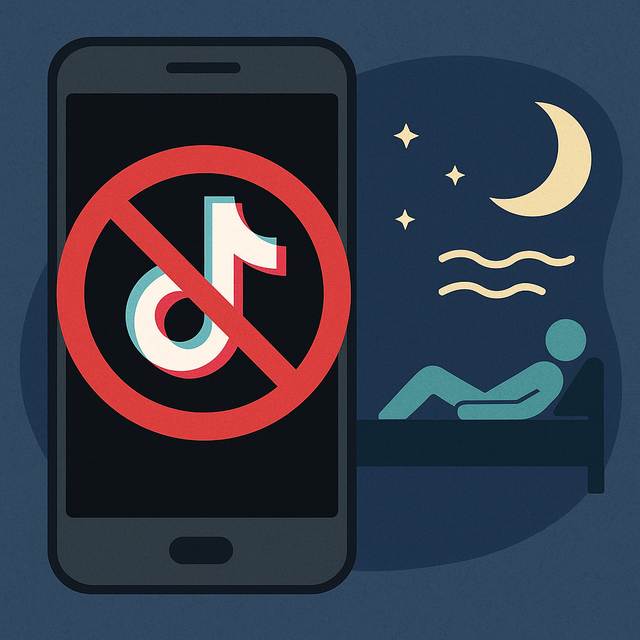As of late May 2025, TikTok introduced a new feature called Wind Down. This feature automatically blocks video scrolling after 10 pm for users under the age of 18. When the time limit is reached, the screen switches to a meditation guide interface: deep breathing, listening to soft music, and suggestions to turn off the device.
If users try to bypass this feature, they will be forced to log out and will have to wait to access the app again. For users over the age of 18, this feature can be manually turned on or off in the “Usage Time” section.

TikTok has just announced a new feature: blocking video scrolling after 10 pm for users under 18.
Mental Health Protection or Behavior Control?
TikTok states that this feature aims to help young people balance their online activities and rest, especially as Gen Z is sinking into the habit of doomscrolling (unconscious scrolling for hours).
However, the limiting of choices is a point of contention. A TikTok user shared: “I’m turning 17 this year, and I feel like I don’t need the app to dictate when I should stop. We’re human, and we all have our own ways of taking care of our health as long as it’s appropriate.”
User Reactions: Gen Z Protests, Parents Approve
Online users are divided into two distinct groups.
– The supporters: Mostly parents and health experts who believe that TikTok has taken a proactive step to ensure that young people sleep on time and reduce academic stress.
– The opponents: Primarily young people who are directly impacted by this change. They view this as a form of “coercion disguised as protection.”
TikTok, being a platform for personal entertainment, now feels like a “military-style restriction” to many, invoking a sense of surveillance and loss of autonomy.
Expert Insight: A Digital Curfew
Regarding TikTok’s implementation of a curfew for users, PGS Nguyen Quoc Bao, a digital communications expert, shared: “In principle, guiding young people to sleep early is necessary. However, doing so forcibly without providing options may backfire.”
Some Western countries have started exploring legal frameworks regarding the digital rights of minors. The question arises: should it be controlled by algorithms or educated through the platforms themselves?
You may not realize it, but when TikTok asks you to stop, it has already stepped into your private life. It’s no longer just a “fun app”; it’s becoming a moral entity that influences behavior, schedules, and even emotions.
And perhaps the scariest part is not being blocked from scrolling… but that we don’t recognize how much we let social media decide for us. Digital curfews are just the beginning. But awakening to this reality and taking back control is up to you. In the endless stream of digital content, knowing when to stop may be the ultimate freedom.




































